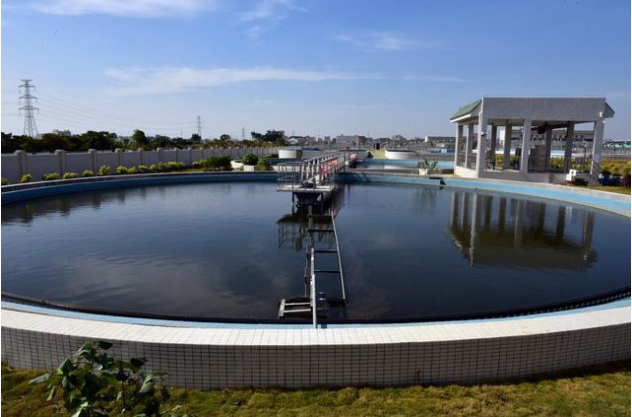New regulations for wastewater treatment are here! They clarify the accountability issues for wastewater treatment plants that exceed discharge standards.
Published Time:
2021-01-04
The problems that have plagued wastewater treatment operators for many years—excessively strict standards, insufficient influent volume, and unclear responsibilities—are expected to be resolved.
Recently, a First Financial journalist learned from the Ministry of Ecology and Environment that the ministry has recently issued new regulations on urban (park) wastewater treatment. The newly issued "Notice on Further Regulating the Environmental Management of Urban (Park) Wastewater Treatment" (hereinafter referred to as the "new regulations") clarifies that localities should build park wastewater treatment facilities according to local conditions and encourage operating units and managed enterprises to agree on water quality and quantity, monitoring, information sharing, emergency response, breach compensation, interpretation, and dispute resolution through signing commissioned treatment contracts and other methods.
A person in charge of the Department of Water Ecology and Environment of the Ministry of Ecology and Environment told reporters that a highlight of these new regulations is that the construction of park wastewater treatment facilities is more practical. For example, if a park has few enterprises and mainly produces domestic sewage without toxic and harmful substances in its industrial wastewater, its wastewater can be treated nearby by relying on urban wastewater treatment plants.
For parks with a small amount of industrial wastewater discharge, they can rely on the sewage treatment facilities of enterprises within the park for treatment, or in accordance with the principle of "three simultaneous" (pollution control facilities are planned, constructed, and put into operation simultaneously with production facilities), construct and operate park wastewater treatment facilities in phases and groups to avoid phenomena such as "sun-bathing" and "overkill" of treatment facilities. Newly built metallurgical, electroplating, non-ferrous metals, chemical, dyeing, leather, and raw material medicine manufacturing enterprises should, in principle, be located in parks that meet the requirements of industrial positioning, and their discharged wastewater should be treated centrally by the park wastewater treatment plant.
The new regulations also stipulate that localities should, in accordance with laws and regulations, clearly define the requirements for pollutant discharge control by wastewater treatment plants, avoid being excessively strict or too lenient, and support regions with heavier tasks for water ecological environment improvement and lack of ecological water use by constructing artificial wetland water purification projects and other ecological measures at key nodes such as downstream of wastewater treatment plant discharge outlets and river inlets to lakes, and work together with wastewater treatment plants to further improve the quality of the water ecological environment.

In recent years, China's urban (park) wastewater treatment industry has developed rapidly, playing an important role in improving the water ecological environment. Photo/Zhang Ke
Regarding the issue of accountability when wastewater treatment plants report that influent exceeding standards leads to effluent exceeding standards, the new regulations clarify that if the effluent of a wastewater treatment plant exceeds the standard, and the illegal act is minor and corrected promptly without causing harmful consequences, administrative penalties may not be imposed in accordance with national regulations. For cases where the operating unit is determined by the industry regulatory department or the Ministry of Ecology and Environment, or the industry regulatory department together with the Ministry of Ecology and Environment, to have exceeded the design regulations or actual treatment capacity of the influent, resulting in effluent exceeding standards, if they actively report and actively eliminate or mitigate the harmful consequences of environmental violations, the administrative penalty shall be mitigated or reduced in accordance with the law.
The "Communiqué on the Second National Pollution Source Census" jointly released by the Ministry of Ecology and Environment, the National Bureau of Statistics, and the Ministry of Agriculture and Rural Affairs on June 8, 2020, shows that at the end of 2017, there were 78,048 centralized wastewater treatment units and 8,969 urban wastewater treatment plants, treating 59.575 billion cubic meters of wastewater. By the end of January 2020, a total of 10,113 wastewater treatment plants nationwide had obtained discharge permits. Currently, the country has more than 1 million kilometers of sewage collection pipelines, with a daily wastewater treatment capacity exceeding 200 million cubic meters.
Wang Hongchen, director of the Low-Carbon Water Environment Technology Research Center at Renmin University of China, recently said when interpreting the new regulations that in recent years, problems of exceeding standards in some urban (park) wastewater treatment plants have occurred frequently, and the responsibilities of local governments, managed enterprises, and wastewater treatment plant operating units are unclear, and their duties are not fulfilled, leading to serious problems of shirking responsibility.
"According to current laws and regulations, local governments are responsible for the water environmental quality of their administrative regions." Wang Hongchen said that local governments should organize relevant departments to compile water pollution prevention and control plans and urban wastewater treatment facility construction plans for their administrative regions, raise funds, reasonably formulate and dynamically adjust charging standards, and establish and implement wastewater treatment charging mechanisms.
Wang Hongchen said that in current controls, it is more common to be unrealistically strict. Some local governments have raised the discharge standards of wastewater treatment plants, causing considerable controversy in the industry. "Simply raising the emission standards of pollutants cannot solve the problem of water environmental quality." Wang Hongchen said that discharge standards, as one of the means of water environmental management, should be technically and economically feasible, and should be used in conjunction with planning, environmental impact assessment, and discharge permits and other environmental management means, adapting to local conditions and water conditions. When high discharge standards are indeed required, the feasibility of ecological treatment should also be assessed first.





